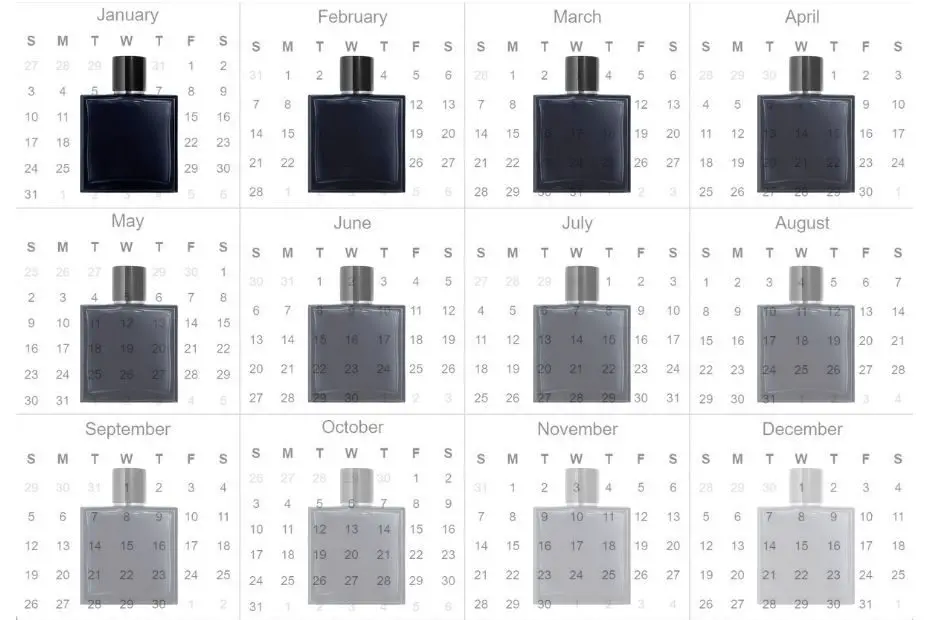Understanding how long a 1 oz bottle of perfume lasts is a question that many fragrance enthusiasts ponder. The longevity of a perfume is influenced by several factors, from the concentration of the fragrance to individual application methods. By delving into the complexities of fragrance mathematics and personal habits, one can develop realistic expectations regarding the lifespan of a perfume.
The first thing to consider is the concentration of the fragrance. Perfumes are typically categorized into different types based on their concentration levels: parfum, eau de parfum, eau de toilette, and eau de cologne. Parfum contains the highest concentration of fragrance oils, generally ranging from 20% to 40%. Eau de parfum follows, with concentrations between 15% and 20%. Eau de toilette has about 5% to 15%, while eau de cologne contains about 2% to 5%. A 1 oz bottle of eau de parfum, for example, may last significantly longer than equivalent quantities of eau de toilette.
Next, one must consider how much perfume is applied during each use. The average spritz of perfume delivers approximately 0.1 to 0.15 ml of fragrance. With 1 oz being equivalent to about 29.57 ml, this means a single 1 oz bottle could yield between 197 to 295 sprays. This leap in numbers can often lead to confusion about how long the bottle will actually last. If one were to use the fragrance every day, a simple calculation could give an approximation. For example, using 3 sprays per day from a 1 oz bottle would theoretically last between 65 to 98 days. This highlights the importance of knowing one’s application habits.
Furthermore, the environment plays a key role in the longevity of a fragrance. Humidity, temperature, and even skin type can alter how long a scent lingers. For instance, warmer climates can amplify the fragrance’s intensity and evaporation rate, whereas cooler settings may help maintain its integrity. Additionally, individuals with oily skin often find that perfumes last longer on them compared to those with dry skin, due to the skin’s ability to hold moisture and thus retain the scent.
Then, consider the nature of the fragrance itself. Different scent families — citrus, floral, spicy, or woody — can exhibit varying degrees of longevity. Citrus fragrances tend to dissipate more quickly due to their volatile nature, while heavier scents like orientals or woody notes often have more staying power. This intrinsic characteristic of the fragrance profoundly influences an individual’s experience with a 1 oz bottle.
Another vital factor is the storage conditions of the perfume. Protecting a bottle from direct sunlight, heat, and fluctuations in temperature can significantly affect the fragrance’s longevity. Ideally, perfumes should be stored in a cool, dark place, away from open windows or heat sources to preserve their quality. The integrity of the perfume can degrade over time when exposed to unfavorable conditions, diminishing its lifespan and overall aroma.
Now, let’s take a moment to discuss the psychological aspect of wearing perfume. The perception of how long a fragrance lasts is often subjective. One may feel that a scent has disappeared after a few hours, while in reality, it may still be present, albeit at a less intense level. The phenomenon of scent blindness, where one becomes desensitized to a fragrance after prolonged exposure, further complicates this observation. It is crucial to understand that the absence of a noticeable scent does not equate to absence entirely.
Given the myriad factors at play, it’s also worthwhile to examine how to maximize the longevity of a 1 oz perfume bottle. Layering fragrances — using products such as body lotions or sprays that complement the perfume — can create a more prolonged aromatic experience. Additionally, strategically applying perfume to pulse points, such as the wrists, neck, or behind the ears, can enhance diffusion and impact how the fragrance perceives over time. The act of applying on warm areas of the body allows the scent to blossom and last longer.
Moreover, the emotional connection with a fragrance can influence how one views its lasting power. A beloved signature scent may feel different than an aroma that is merely pleasant. The deeper the emotional resonance, the more one tends to notice the subtleties of its lasting qualities. Therefore, understanding the personal relationship one has with a fragrance is crucial in quantifying its longevity.
In essence, predicting the lifespan of a 1 oz bottle of perfume is not a straightforward proposition. From the fragrance concentration and application methods to environmental factors and storage conditions, multiple dynamics contribute to its eventual longevity. By understanding these elements, not only can you calibrate your expectations, but you can also elevate your fragrance experience, ensuring that your cherished scents continue to delight you for as long as possible.
Whether you’re a casual wearer or a devoted connoisseur, grasping the nuances involved in fragrance longevity can empower you to make informed choices about your scent wardrobe. With careful attention to detail and mindful application practices, one can enjoy each delightful spritz, maximizing the beauty encapsulated in every bottle.

